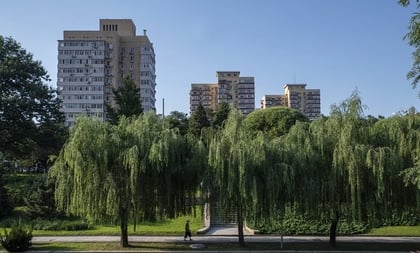The China Banking and Insurance Regulatory Commission wants to help the elderly enjoy their golden years in comfort. With the world’s fastest-aging population and a pension system beset by shortfalls, China is turning to a staple of late-night television commercials — reverse mortgages — to help out retirees. It just might work.
Outside of Beijing and Shanghai, China’s real-estate market is nearly moribund after years of spiraling values drove home-ownership beyond the reach of many people. In the southern city of Shenzhen, which has an official population of 12.5 million and more than 4 million housing units, only 12,804 units changed hands in the first half of this year. To put that in perspective, it would take 163 years at this rate to sell off existing units. In the coastal city of Xiamen, with a population of more than 4 million, just 2,500 units were sold.
(Related: China’s Next Debt Bomb Is an Aging Population,)
Yet housing is one area where China has significant untapped wealth and low debt ratios. When the government began letting people buy their own property, or at least secure long-term leases on state-owned land, most of the existing housing stock was sold to tenants at heavy discounts.
After decades of rising prices, the paper value of homes now far exceeds outstanding loan values. While the estimated paper value of urban residences is about 360 trillion yuan, total household debt is only 44 trillion yuan.
Even if you assume that all Chinese consumer debt was used to purchase an urban apartment, this would suggest a loan-to-value ratio of only 12%. In other words, 88% of China’s urban home value would be owner-equity.
Each yuan is worth one-seventh of a dollar. This means the urban households have the equivalent of more than $40 trillion in paper urban residence owner-equity.









 August 20, 2018 at 06:49 PM
August 20, 2018 at 06:49 PM












 Christopher Balding is an associate professor of business and economics at the HSBC Business School in Shenzhen and author of “Sovereign Wealth Funds: The New Intersection of Money and Power.”
Christopher Balding is an associate professor of business and economics at the HSBC Business School in Shenzhen and author of “Sovereign Wealth Funds: The New Intersection of Money and Power.”